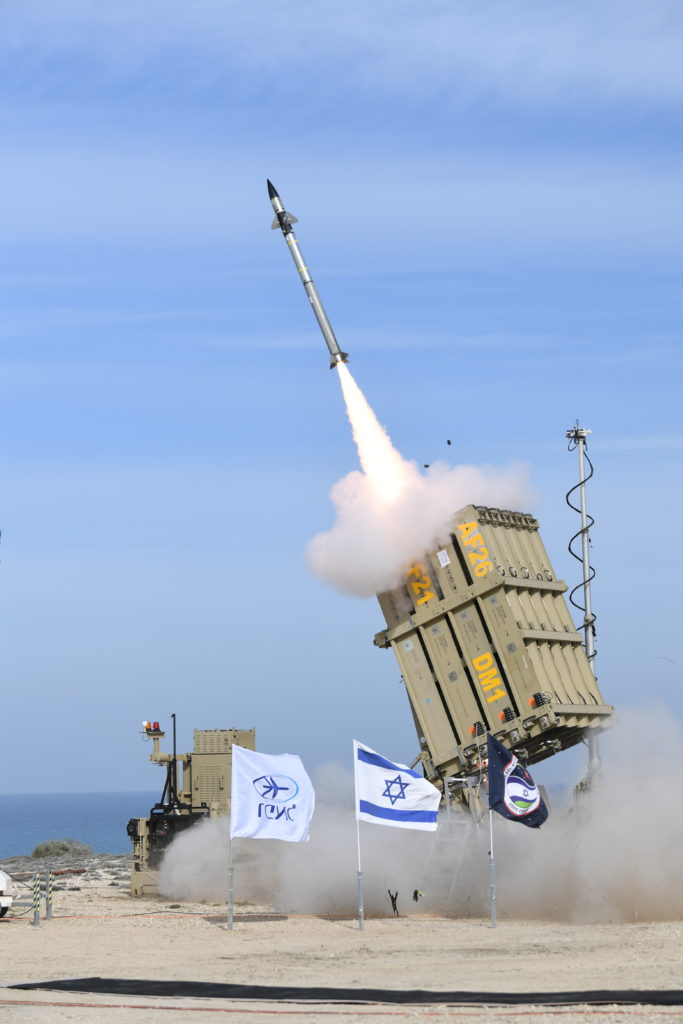
A total of six rockets were launched from Syria at Israel on Saturday and Sunday—just days after terrorists in Lebanon fired dozens of rockets at Israel—with Israel responding to the attacks by striking targets in both countries. In addition to the northern rockets, the IDF Twitter page also reported that rockets were launched from Gaza at Israel last week as well. Given the groups and nations involved, Iran appears to have influenced—if not ordered—the various rocket attacks.
The surge in fighting comes after an Iranian-sponsored terrorist recently carried out an explosive attack in Israel and the Israelis responded by killing at least two members of Iran’s Islamic Revolutionary Guard Corps acting as advisors in Syria.
Commenting on the rocket onslaught from Lebanon on Thursday, Israeli Prime Minister Benjamin Netanyahu warned in comments published by Israel that the country would counter attacks on its territory: “Israel’s response, tonight and in the future, will exact a heavy price.”
The norther conflict was unusual in multiple ways. First, the large number of rockets—34 from Lebanon and the half dozen from Syria—are rarely fired at Israel from its northern neighbors. Second, IDF International Spokesperson Lt. Col. Richard Hecht reported on the IDF Twitter page that the rockets launched from Lebanon were believed to have been shot by agents of the Hamas terror group that is headquartered in Gaza, rather than the Hezbollah group based in Lebanon. Both organizations are sponsored by Iran.
The gravity of the situation was not lost on the United Nations Interim Forces in Lebanon (UNIFIL) peacekeepers. In a press statement posted to the UNIFIL website on Friday after Israel acted on their warning to fire artillery into Lebanon in response to the rockets, UNIFIL said, “Both sides have said they do not want a war. The actions over the past day are dangerous and risk a serious escalation.”
The Lebanese Armed Forces reported on Saturday via their Twitter page, in Arabic comments translated by Google, that they found “missile launchers and a number of missiles that had been prepared for launch a few days ago.” Efforts to dismantle the weapons were underway.
While the Lebanese worked on the launchers in their country, Israel took care of the Syrian weapons. The IDF Twitter page reported early Sunday morning that an IDF drone was in the midst of striking the Syrian launchers. Three of the six rockets fired from Syria managed to reach Israeli territory, with one intercepted by Israel’s missile defense system. The IDF reported that of the 34 rockets launched into Israel from Lebanon, at least 25 were intercepted by Israel’s missile defense systems, with another five landing in Israel and four more still under review as of Thursday.
Israel has seen large political protests in recent weeks, but Netanyahu again made it clear on Thursday that “internal debate” would not prevent the country from defending itself “wherever and whenever necessary.”
Said Netanyahu in comments published by Israel, “Our enemies will discover, again, that at moments of truth, the citizens of Israel stand united and unified, and back the actions of the IDF and the other security services to defend our country and our people.”
(By Joshua Spurlock, www.themideastupdate.com, April 9, 2023)
